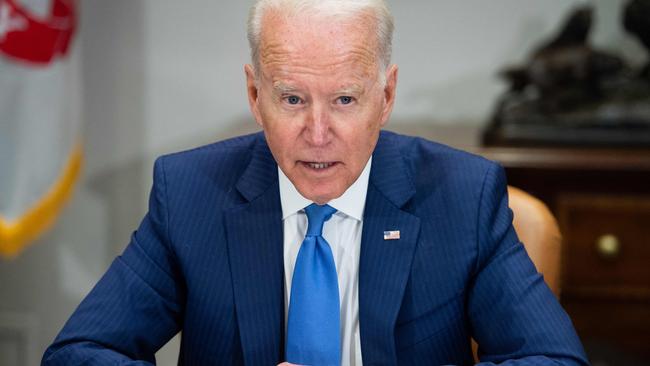
Democrats and Republicans agree on almost nothing; and small government, though it was killed by Donald Trump and Covid and is as dead as a political idea can be – which is to say at least one election cycle away from a revival – remains the guiding star of what was once the party of Ronald Reagan.
Such is one view of US politics today. And like most views it contains some truth. Relations between the two major political parties in the US have not been so bitter since the reconstruction period after the civil war, when the victorious and Republican-leaning north made a short-lived attempt to transform the defeated south, which after the last federal troops were withdrawn after a disputed presidential election – sound familiar? – in 1877 quickly became a group of one-party Democratic states known as the solid south.
Though Trump won the Republican nomination and a general election in 2016 campaigning on an apparent rejection of Republican orthodoxy on economics as well as foreign policy, what he said before he was elected and what happened during his time in office tended to be two different things – which is true about Reagan himself and all other presidents, in fact.
And though Covid has made concerns about the dangers of big government seem absurd to many, if not all, the Covid relief bill passed the Senate by only one vote, 50-49, with no Republicans voting in favour.
But another vote in the Senate last month and, perhaps, a bipartisan deal on infrastructure spending suggest if this view contains some truth, it’s far from the whole truth.
On June 8 the Senate approved, 68-32, with 19 Republicans including powerful minority leader Mitch McConnell voting in favour, a bill aimed at preserving the country’s position as the world’s greatest economic and technological power.
Universally and affectionately known in Washington as “the anti-China bill”, it allocates about $US250bn ($333.7bn) in subsidies to industries such as artificial intelligence and robotics. It is designed to reduce American dependence on foreign manufacturing, especially of semiconductors, and it requires that materials used in federally funded infrastructure projects be produced in the US.
For serious observers of American politics, a vote in the US Senate is still more significant than the pantomime of a Group of Seven summit or the antics at the annual Conservative Political Action Conference for conservative activists that took place in Dallas last weekend and that would lead one to believe the Republican Party is a travelling circus rather than a political party.
The infrastructure bill is yet to pass the Senate, with only 11 Republican senators involved in the bipartisan working group and Democrats apparently determined to pass a much larger bill later in the year, without any Republican support, through the ironically named reconciliation procedure – the parliamentary procedure that allows a simple majority to bypass the filibuster, when it can otherwise require a 60-vote supermajority to be overcome. But these rare displays of (relative) congressional bipartisanship lend credence to a claim University of Chicago political science professor John Mearsheimer, arguably the world’s best known “realist” theorist of international relations, has been making for years.
No matter what divisions there are over domestic or even foreign policy, Mearsheimer says, and even if most of the American population is at best lukewarm about making sacrifices to defend the US’s role in the world, the military-industrial-intelligence complex that was created after World War II will succeed in mobilising enough political support to wage something like Cold War II in the 21st century.
And this is not just because the complex can tempt politicians with positions in the so-called private sector after they leave office, or threaten them with the loss of defence-related jobs in their home states while they are facing re-election battles, though it surely can. It is also because the foreign policy of the US, like that of all states, is fundamentally driven by self-interest in a dangerous world, and it is in the self-interest of the US to remain the world’s greatest power.
Like all of Mearsheimer’s predictions, and the predictions of realist international relations theory in general, this one is not based on a fine-grained analysis of anything in particular. The arcane personal and ideological battles taking place within the Republican Party, which are as fascinating to specialists of American conservatism like me as fictional series such as Game of Thrones are for normal people, mean little to him. But he is not necessarily wrong for that. The question is: is he really right?
When thinking about this, I cannot help but recall something an American friend, a hard-headed conservative insider, said to me when I asked him last year what he thought would happen in the presidential election. He wasn’t sure Trump would win – in fact, he thought Joe Biden would win – but he also said “the polls can’t be right because they are based on a country that no longer exists”.
And indeed, for a foreign observer who knows the US intimately yet has not been absorbed by it, the most remarkable thing about the country today is the contempt for nearly all institutions and authorities, down to opinion pollsters.
This contempt is deep, widespread, bipartisan and non-partisan, if it takes a particular form on the American right, and apparently it is reciprocated. It has been reinforced by Covid, which has discredited not only politicians and administrators but also doctors and scientists. The military remains something of an exception, but it has been made up entirely of volunteers since 1973 and increasingly is alienated from the people who historically have been its backbone.
There is also the question of whether it is really in the US’s self-interest to take the lead in confronting China, up to credibly deterring an attack on Taiwan, with all the risks and costs that entails. At a conference at the University of Chicago years ago on this question, someone asked whether any US president would really be willing to trade Los Angeles for Taipei. “Los Angeles, maybe,” a native midwesterner dryly responded, “but not a decent place like Wichita, Kansas, let alone Chicago or New York.”
As many have noted, the relationship between the US and China is very different from the one between the US and the Soviet Union. As a trading partner and the owner of more than $US1 trillion in American debt, China is entangled with the US in a way the Soviet Union never was. Some efforts have been made on both sides to “decouple”, but with limited effectiveness so far.
And realist theory itself would predict that even in the absence of US leadership, other nations in China’s region would form a balancing coalition, probably under Japanese leadership, against the emerging power, which as an ageing society with no significant allies and little apparent room to expand is a funny kind of emerging power anyway.
All of which should at least give US allies pause before making a bet on America’s commitment to Cold War II.
John Sexton is a PhD candidate at the University of Chicago and has taught US politics at the University of Sydney.




America’s political class is deeply divided and the Republican Party is going through an identity crisis over, among other things, its attitude to the role of the state.